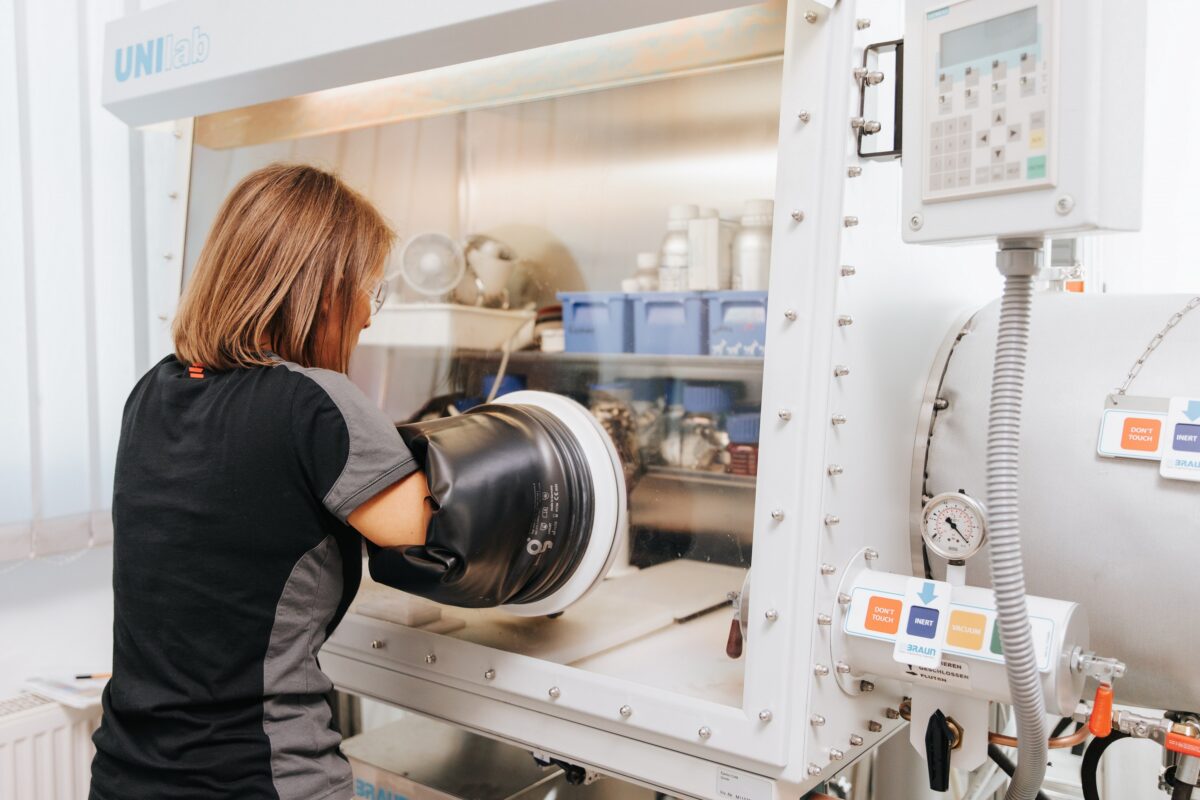Epsilon Advanced Materials (EAM) and South Korea’s Daejoo Electronic Materials (Daejoo) have announced a joint development program to develop a Gen 1 graphite-rich silicon composite material to improve the performance and efficiency of lithium-ion batteries used in electric vehicles (EVs).
The partnership will combine Epsilon’s Graphite and Daejoo’s Silicon material to develop a product that outperforms current material technology used in LiB. Nagase, a Japanese trading company, played a role developing the partnership between the two companies.
Under the joint program, the companies target to develop Gen-1 graphite-rich silicon composite anode materials for lithium-ion batteries with a capacity of 450 – 600 mAh/g, thereby increasing discharge capacity by 50% and life span by thousands of cycles.
EAM will supply synthetic graphite, which will be used to create and evaluate SiOx-Graphite composites in Daejoo’s laboratories. Daejoo will provide samples for the same purpose, allowing EAM to tailor and test SiOx-Graphite composites in its own labs.
Both companies aim to qualify the SiOx-Graphite composite materials with their customers to develop innovative products. EAM expects to complete the development and evaluation of the SiOx-Graphite composite material by the end of 2024 and then explore the material qualification with cell manufacturers jointly.
Vikram Handa, managing director of Epsilon Group, said, “Through continuous R&D efforts like these, we are committed to pioneering advancements in battery innovation. Upon successful completion of our rigorous in-house evaluation processes, we will be well-equipped to meet the evolving needs of the mobility industry by providing high-performance, safe battery solutions.”
Dae Woon Park, managing director of Daejoo Electronic Materials, said, “Collaborating with EAM, not only strengthens our presence in the rapidly growing Indian market but also aligns with our global strategy of developing advanced materials tailored to the diverse needs of customers and the market.”
Silicon-graphite battery materials represent a significant advancement in lithium-ion battery technology. By combining the high capacity of silicon with the stability of Graphite, these materials offer a superior alternative to traditional graphite anodes, meeting the increasing demands for higher performance, longer life, and fast charging in modern battery applications. This makes them particularly well-suited for the evolving needs of the automobile industry and other high power demand sectors.
Epsilon Advanced Materials, established in 2018, develops sustainable anode and cathode materials for lithium-ion batteries. The company has commissioned India’s first graphite anode material customer qualification plant in Bellary, Karnataka, with plans to produce 30,000 tons/annum by 2025 which will scale up to 100,000 tons/annum by 2030.
Daejoo Electronic Materials (Daejoo) from South Korea is one of the leading global producers of silicon anode materials for lithium-ion batteries.
This content is protected by copyright and may not be reused. If you want to cooperate with us and would like to reuse some of our content, please contact: editors@pv-magazine.com.









By submitting this form you agree to pv magazine using your data for the purposes of publishing your comment.
Your personal data will only be disclosed or otherwise transmitted to third parties for the purposes of spam filtering or if this is necessary for technical maintenance of the website. Any other transfer to third parties will not take place unless this is justified on the basis of applicable data protection regulations or if pv magazine is legally obliged to do so.
You may revoke this consent at any time with effect for the future, in which case your personal data will be deleted immediately. Otherwise, your data will be deleted if pv magazine has processed your request or the purpose of data storage is fulfilled.
Further information on data privacy can be found in our Data Protection Policy.